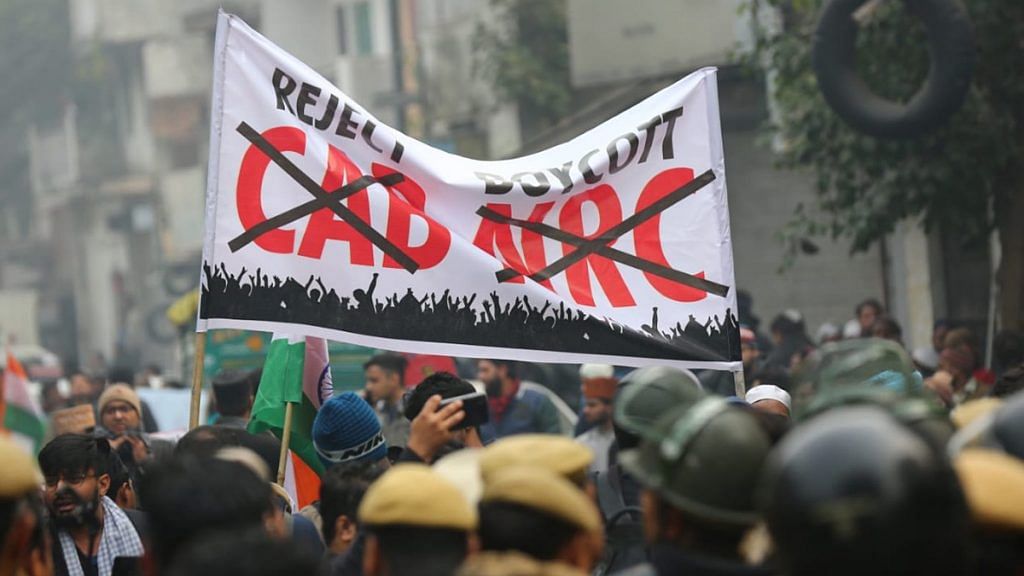New Delhi: A group of former civil servants, including prominent former IAS officers such as Aruna Roy and Wajahat Habibullah, have penned an open letter expressing concern over the growing “assault on the Rule of Law in India and on its citizens’ rights to free speech and dissent”.
In a letter titled ‘Assault on the Rule of Law and Article 19 of the Constitution of India’, 99 civil servants lamented the “erosion” of the rule of law in the country and urged all Indians to “unite” in defence of the rule of law and Article 19 — the Right to Freedom of Speech, which they said are “basic elements of any democracy”.
The collective known as the Constitutional Conduct Group, is known for voicing concerns regarding socio-political developments in the country and includes several prominent ex-IAS, IPS and IFS officers.
Prominent IAS officers who are part of the group include Aruna Roy, P.S.S. Thomas, Vijaya Latha Reddy, Meena Gupta and Wajahat Habibullah.
Some of the well-known Indian Foreign Services officers in the group include Shivshankar Menon, Madhu Bhaduri, Deb Mukharji and Shiv Shankar Mukherjee. A.S. Dulat, Amitabh Mathur, Aloke B. Lal are some of the Indian Police Services officers who are signatories to the letter.
Also read: Indian citizens and media have been terrorised enough with sedition. SC must end it now
‘Misuse’ of sedition law
The letter talked about the blatant use of the sedition law and how the rule of law “militates against the actualization of the freedom of speech”.
It cited the arrest of 11 activists, including Kafeel Khan, Safoora Zargar, Akhil Gogoi, Sharjeel Imam, and the murder of Karnataka-based journalist Gauri Lankesh to highlight the corrosion of Article 19 under the government.
The letter added that the government cannot use the current pandemic as an excuse to curb media freedom across the country.
According to the letter, the law of sedition, which it terms a “colonial relic”, has seen a sharp increase in use. The letter alleges that “any criticism of the government is considered ‘anti-national’ and invites punitive wrath”.
The former civil servants also blamed the government for attempting to clamp down on the media and note India’s fall in the Press Freedom Index of Reporters Without Borders.
India ranked 142nd out of 180 countries covered in 2020. In 2019, it was ranked 140.
The letter alleged that the government has used the pandemic as a means to silence the media, giving examples of 55 journalists who were singled out for writing about mishandling of the crisis, and the criminal case against Siddharth Varadarajan, the founding editor of TheWire, for writing against Uttar Pradesh Chief Minister Yogi Adityanath.
Also read: After SC, how Tripura High Court added muscle to freedom of speech & expression
Disregard for Article 19
The signatories of the letter also argued that the “gulf” between the “rhetoric and reality” in the rule of law is widening.
They mention the government-imposed curfew in Kashmir and the use of the stringent Unlawful Activities Prevention Act (UAPA) against people who participated in the protests against the Citizenship Amendment Act and the National Register of Citizens.
The letter further alleged that the police establishment has become a proxy at the hands of the political party in power.
According to the letter, the arrest of activists such as Sudha Bharadwaj, Shoma Sen, Gautam Navlakha and Anand Teltumbde under the UAPA is choking their freedom of expression.
Commenting on the Northeast Delhi riots, the letter noted, “The investigations into the riots in north-east Delhi have betrayed an institutional bias against the minority community.”
This was in reference to Dr M.A. Anwar, the proprietor of Hind Hospital, being mentioned in a chargesheet by the Delhi Police.
Dr Anwar had reportedly provided crucial medical services to the victims of the Delhi riots.
